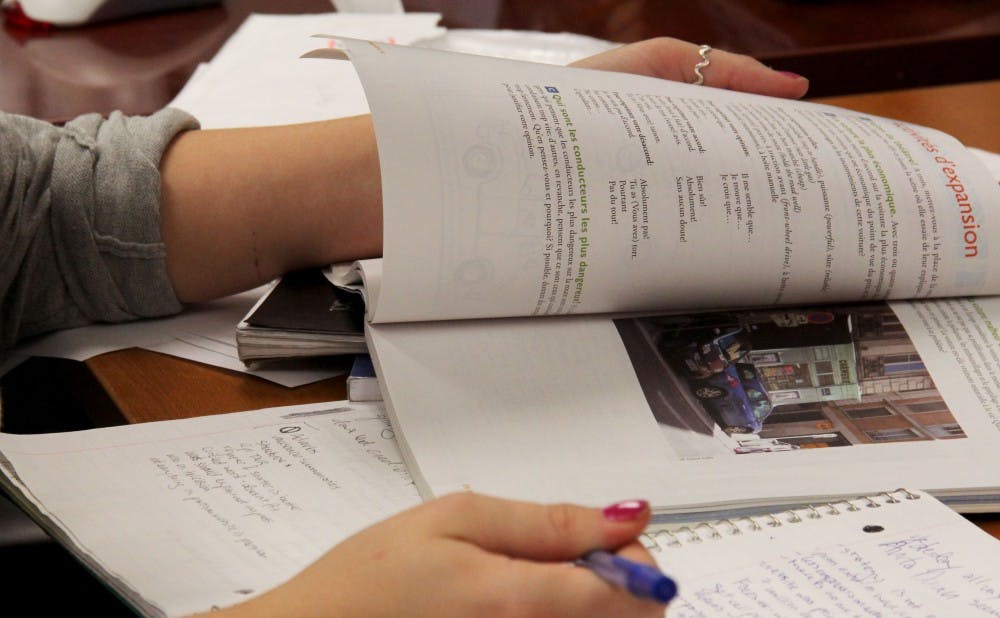A new test examining college students’ critical thinking skills upon graduation may impact the way employers and post-graduate institutions view higher education.
Created ten years ago by the Council for Aid to Education, the Collegiate Learning Assessment aims to investigate students’ demonstration of core learning skills. The test was founded with the intention of aiding both institutions and employers by allowing universities to compare their students' scores with that of students at their peer institutions, while also grading students on an individual basis.
Although the University does not currently use the test as an indicator of student performance, it is something being considered, especially within individual departments, said Stephen Nowicki, dean of undergraduate education.
But Nowicki noted that universities such as Duke offer such a broad spectrum of individualized education for each student that a blanket test may over-generalize a diverse student population.
“I would be doubtful that Duke would choose a general measure of our educational accomplishments,” Nowicki said. “The kind of education institutions like Duke provides needs to be tailored to individual students.”
He added that, although the test evaluates the impact of college on student intelligence levels, students at the University already come in with very high cognitive abilities, making it harder for Duke to cause a large improvement in their intellect.
But some employers are beginning to ask for an alternate form of student assessment aside from grades, said Chris Jackson, director of partner and business development at the Council for Aid to Education. He noted that grade inflation is common at some universities, leading to many students graduating with a GPA of 3.7 or higher.
“This [test] is based a lot upon the feedback we have gotten from employers,” Jackson said. “The CLA+ score is in no way going to take the place of a job interview, cover letter or LinkedIn profile, but it allows students to show their diverse skills.”
Although some employers may be requesting this test, the University’s Career Center does not currently have any data on the test and has never received requests from employers for scores, said Megan Wilson, program and marketing coordinator for the Career Center.
Nowicki noted that holding institutions accountable for the education they offer is an important idea that is not always common in academia. A test catered to the wide array of students in the United States, however, may not be the best translation of the idea.
“I am a big proponent of assessment—how do we know what we do is effective?” Nowicki said. “But the conceiving of a nationwide test is naïve.”
Get The Chronicle straight to your inbox
Signup for our weekly newsletter. Cancel at any time.
The far-reaching nature of the test is conducive to its goal of identifying students with unrepresentative grades, Jackson said. Employers often blame universities for new employees' lack of real-world skills, Jackson said, adding that broader cultural changes may be the real culprit behind poor student performance.
“The concept of critical thinking has changed in the last ten years. It’s not black and white,” Jackson said. “Students may not have these skills to the level that is necessary to immediately contribute to a working environment.”

